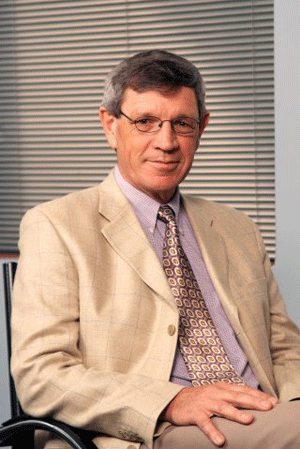 Dark Clouds and Silver Linings
Dark Clouds and Silver Linings
Dr. Hennie de Clercq, Executive Director, Southern African Institute of Steel Construction.
On 1 June 2012, I had the pleasure of being part of a building industry group invited by the Reserve Bank to bring them up to speed with what is happening in this industry.
This was the whole purpose of the meeting – to inform the Bank – but I found it fascinating that the members of the group of visitors latched onto this opportunity to give the Governor and her senior officials a whole earful of the problems besetting the industry, not in the mode of “here’s what’s happening in our world; hope it helps you to formulate your policies” but rather “these are our problems; can you help us with them?”
The Reserve Bank keeps itself busy with such issues as the exchange rate of the rand, the inflation rate, interest rates and the availability of money and we all know that.
Nevertheless, some of us clearly came with the expectation that the Governor could help us, and actually asked her for help with the litany of problems facing the building industry. The list of problems include the general lack of capacity at local authority level, one of the results of which is that it is often very difficult to get permission to build, the fact that developments are held back because of a shortage of services, especially electricity, a general lack of forward planning, the lack of enthusiasm among banks for lending money to fund projects, the fact that authorities on all levels are very slow to pay consultants or contractors, and several other issues, each of which can be further elaborated.
From the Institute’s side we expressed concerns about whether the government will actually spend the muchvaunted funds on capital expenditure, and the fact that the private sector does not seem to have enough confidence to embark on capital projects.
The list of problems was in itself quite disheartening; there are surely many things to fix about the government of this country. But I found the fact that we were just too eager to pour our hearts out to the first person in authority who would listen to us (with ‘us’ including the Master Builders and the associations representing the architects, civil engineers, consulting engineers, quantity surveyors, black professionals, and two black contractors associations) disquieting. This confirmed what some of the delegates said: there is a disparity between the private sector and government; there is also a lot of distrust.
The fact that many managers in the local authorities and departments like Public Works have no technical background adds to this distrust and lack of understanding. This means that the available high level skills, including that of black people, are generally not employed towards addressing the country’s issues.
It was clear that none of what we said was really news to Gill Marcus – she knows about it all, but she wanted to hear it directly from us. She said the Reserve Bank was not the medium for addressing the problems, but she did have some good news. The most important good news was that she felt confident that the government would expedite its capital expenditure programme, especially through Eskom, Transnet and SANRAL.
On the other hand, we should expect ongoing uncertainty and volatility with respect to such key things as the exchange rate of the rand and the economic growth rate.
The problem is basically that we are part of a world economy that is in a very difficult state. The Governor said: “The situation in Europe may take a generation to be resolved”.
That’s serious. When countries land themselves in a situation where there is no expectation of things improving any time soon the people start getting restless and politicians start thinking about drastic measures to get something new to strive for. Then things can go properly off the rails. Much as we have been programmed by decades of peace to think otherwise, the world may well become a really dangerous place.
Once we start looking at what’s happening in other countries, a new perspective on our own situation starts emerging. We are certainly in a better situation than many, and there are great opportunities to do exciting things, in the country and on the sub-continent. But to realise these opportunities we need leadership; leadership of a quality that no country can expect every time they need it, and certainly not leadership that’s in evidence when we look around us.
There is every reason to believe that the future will be interesting; there’s less reason to think that it will be marked by unadulterated peace and prosperity.
Leave a Reply